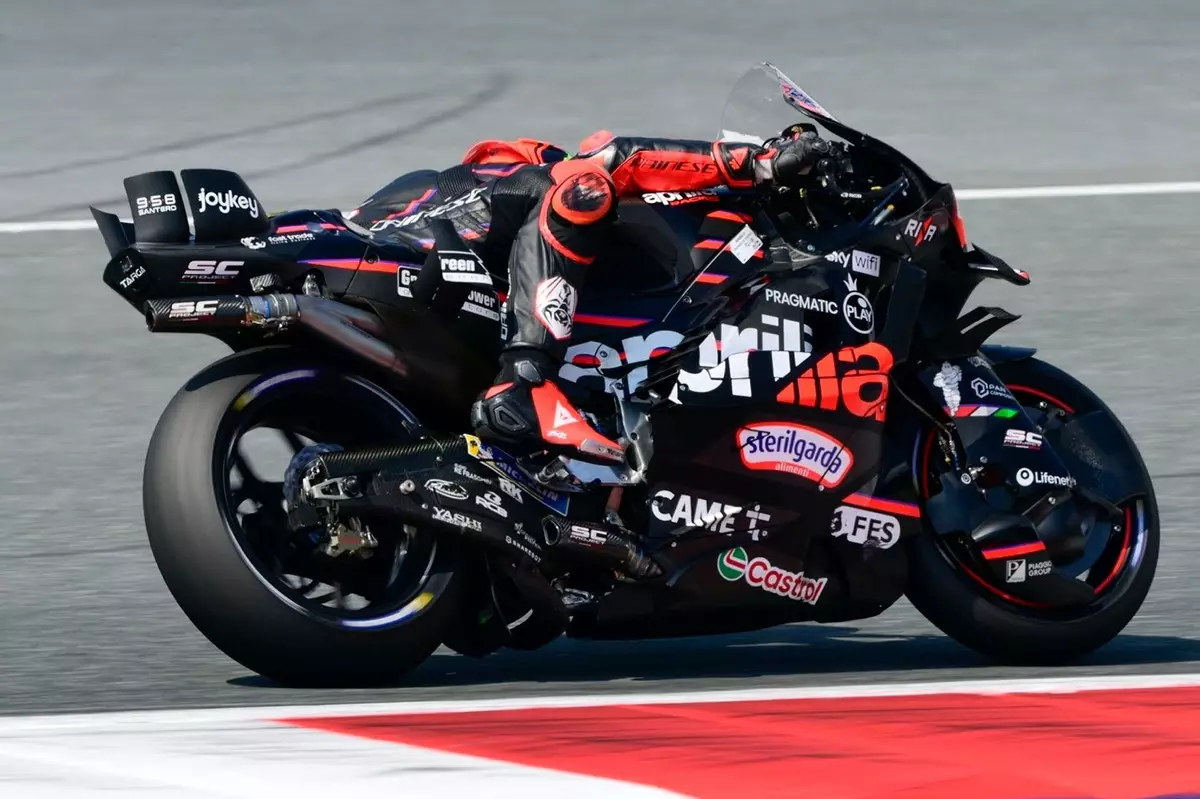In the high-stakes world of MotoGP, where milliseconds define legacies, Marco Bezzecchi’s recent performance at the Austrian Grand Prix exemplifies the importance of mental resilience and strategic adaptability. Despite not securing a podium in the sprint race, Bezzecchi remains undeterred. His determination to improve is rooted in the understanding that racing isn’t just about raw speed—it’s about harnessing every ounce of potential through relentless effort and a keen eye for nuance. The fact that he set the fastest time in Sunday morning’s warm-up indicates a mindset geared toward evolution, showing that setbacks are merely catalysts for future success rather than definitive failures.
His approach highlights a crucial lesson: persistence in racing translates to longevity. Bezzecchi’s ability to stay composed after a disappointing sprint performance defines him as a rider willing to learn and adapt. It’s not about how many moments you stumble in the race but how you bounce back. In this context, his warm-up results and realism about his pace demonstrate a fighter’s spirit—rooted in humility but fueled by ambition. Such mindset shifts can often be the distinguishing factor between those who plateau and those who ascend the ranks.
The Role of Strategic Improvements
What sets Bezzecchi apart—and arguably, what makes his future bright—is his capacity for rapid learning and team synergy. Aprilia’s history of technological improvements overnight provides a blueprint for hope; an acknowledgment that while current performance may fall short, dedicated effort can turn the tide quickly. Bezzecchi’s journey is a testament to how strategic tweaks in setup and a fresh perspective can elevate a rider’s competitiveness, even after marginal failures.
The Italian’s reflections on Saturday’s qualifying and sprint reveal an awareness that consistency isn’t achieved overnight. He recognizes his current pace limitations but also sees a clear path for progress. His close watch on set-up details, combined with input from veteran Valentino Rossi, demonstrates that technical finesse and mental agility are equally vital. It’s a reminder that technical excellence isn’t just about hardware but about intelligent, situational adjustments that fit the unique demands of each race.
The Significance of Morning Warm-up and Race Day Optimism
A noteworthy aspect of Bezzecchi’s recent performance is his optimistic outlook fueled by the warm-up session. His time—just under 1:29.350—surpassed historical benchmarks for the layout, suggesting that his potential is well within reach. This isn’t mere coincidence but a reflection of his focused preparation and willingness to push boundaries even during pre-race warm-up.
While warm-up times often hold limited sway over race outcomes, they serve as critical morale boosters and indicators of a rider’s current form. Bezzecchi’s speed and confidence in that session suggest he’s tapped into a rhythm that could challenge the front runners if conditions favor him. His cautious optimism about working through the night to find additional pace underscores a pivotal trait for racers: an unwavering belief that they can improve, regardless of setbacks. His attitude embodies a broader lesson for competitive athletes—success is rooted in the continuous, relentless pursuit of betterment.
Weather: The Wild Card in Bezzecchi’s Ambitious Chase
Amid all the technical and mental preparation, unpredictable weather conditions remind us of racing’s inherently capricious nature. The potential for rain at the Styrian GP means Bezzecchi faces not only a battle against other riders but also nature’s unpredictable temperament. In motorsport, weather can be a game-changer, capable of transforming a meticulously crafted strategy into chaos.
This uncertainty amplifies the importance of adaptability—qualities that Bezzecchi has demonstrated time and again. His ability to interpret changing conditions and remain composed under pressure could tip the scales in his favor, especially if race day becomes slippery and inconsistent. In a broader sense, this volatility underscores a vital truth: success isn’t purely based on performance metrics but also on the mental resilience to navigate chaos. Bezzecchi’s readiness to face weather-related hurdles could be the defining factor that elevates him from a talented rider to one capable of seizing victory against the odds.
In essence, Marco Bezzecchi’s current trajectory exemplifies the transformative power of persistence, technical adaptability, and mental toughness. While obstacles remain, his unwavering commitment signals a promising future—not just for Austria but for his overall MotoGP journey.


Leave a Reply